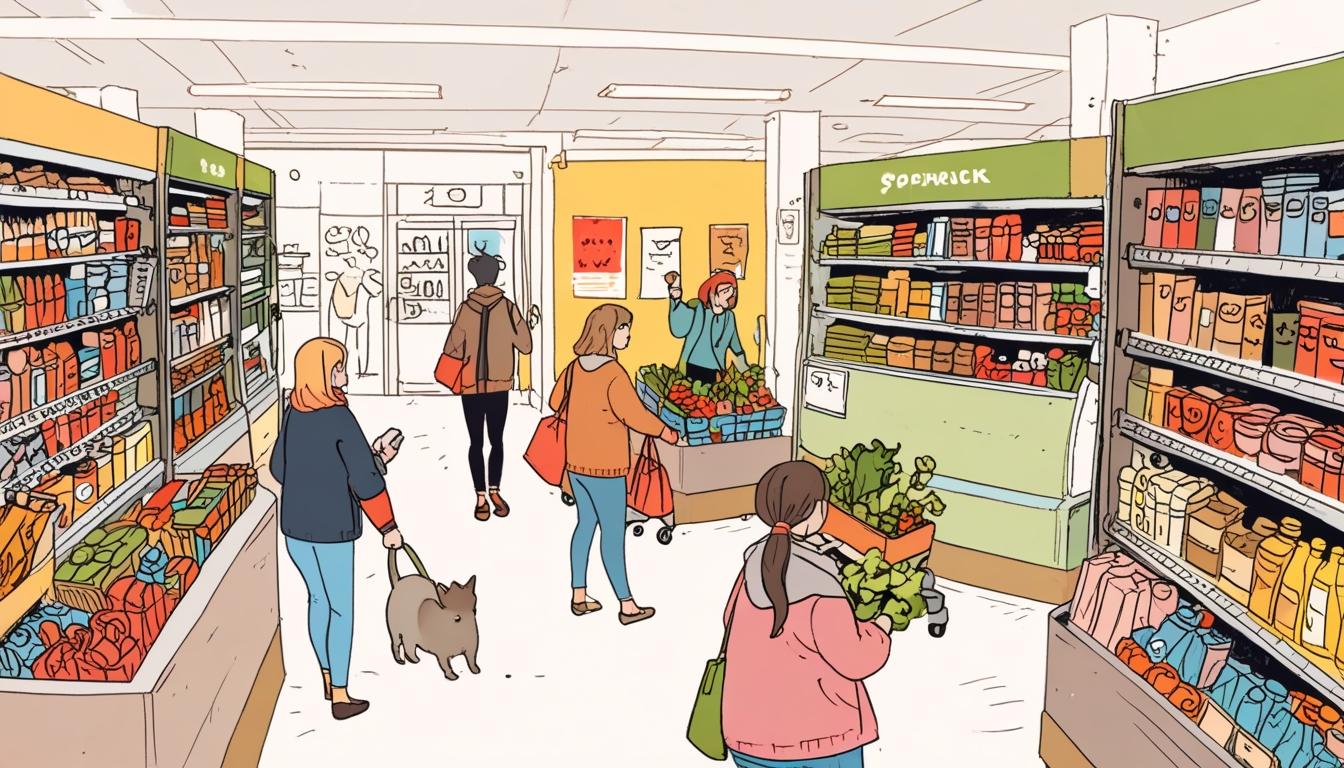From fake products to whimsical announcements, brands like Asda and Heinz got creative to entertain and amuse this April Fool’s Day.
April Fool’s Day, observed on 1 April, is a day characterised by pranks and hoaxes, with individuals and organisations across the globe attempting to fool each other through creatively devised tricks. With a rich history of elaborate and often silly stunts, this year was no different. Companies large and small participated in the festivities, vying for attention with humorous announcements aimed at catching readers and consumers off-guard.
Among the highlights was a prank from Asda, the budget supermarket chain, which declared a new dress code requiring all shoppers to display a visible back pocket to gain entry. To ensure compliance, Asda claimed it would distribute free stick-on pockets at the entrance, with staff trained to assist customers. This light-hearted joke played on their iconic “Pocket Tap” advertising slogan, offering a humorous take on retail rules.
Similarly, Heinz Beanz attempted to elicit laughs by claiming the release of a new Dubai flavour, incorporating pistachio. The company shared an eye-catching graphic with fans on X (formerly known as Twitter), describing its new ‘Dubai Beans’ as “luxury in a tin.” The absurdity of the flavour, combined with its bold presentation, appealed to the humour of followers.
Sweet brand Wild Thingz introduced its own unique prank by proposing a “manure-flavoured gummy” hidden in their packets. They described this sweet as offering an “earthy, farm-fresh explosion,” encouraging consumers to examine their bags carefully for the limited-edition confection. The outrageous concept aimed to both disgust and amuse, highlighting the lengths companies would go to in crafting memorable pranks.
Tim Hortons, the Canadian café chain, revealed plans for a “crispy chicken donut sandwich,” but with a catch: it would only be available to those who exhibited politeness and goodwill in-store. This prank underscored the company’s cultural roots in kindness, crafting a scenario where courtesy would be rewarded with access to a whimsical and unlikely product.
Across the pond, Birds Eye teased fans with a revelation about their iconic potato waffles, citing a new product titled ‘Waffholes,’ claiming to answer the age-old question about what happens to the holes left over from the waffle-making process. The joke resonated with fans, poking fun at consumers’ curiosity while showcasing the brand’s creativity.
Subway also joined in on the fun with an advertisement for “footlong protein shakes,” announcing that they would blend popular sandwich fillings into high-protein beverages. Each shake would reportedly contain between 40 grams and 59 grams of protein, a humorous take on health trends within the food industry.
In a more ludicrous vein, BrewDog claimed to be developing “hot beer,” focusing on the absurdity of a beverage that would typically be served cold. They positioned it as an innovation akin to other questionable inventions, while also eluding to their reputation for pushing the envelope in the craft beer market.
Another prank came from the renowned chocolate company Terry’s, who joked about the launch of a “toothpaste” variant of the beloved Terry’s Chocolate Orange. This playful twist on a common household product highlighted the blend of familiarity and absurdity that characterises a successful April Fool’s joke.
Lastly, the Heathrow Express announced the “Henry Express,” styled as the world’s first spring cleaning train, referencing the popular Henry vacuum cleaner. This whimsical announcement came alongside the promise of a unique experience, engaging passengers with the persona of the cheerful cleaning device in a cheeky marketing twist.
With the culmination of prank announcements, April Fool’s Day 2023 showcased the comedic creativity of companies, delighting participants and followers with an array of bizarre product launches and whimsical ideas that left many wondering, “Could this actually be real?”
Source: Noah Wire Services
- https://www.indy100.com/news/best-april-fools-pranks-2025 – This article lists various April Fools’ Day pranks from companies like Subway and Tim Hortons, highlighting their creative efforts to fool consumers.
- https://www.tomsguide.com/news/live/april-fools-day-2025-live-best-pranks – It provides coverage of April Fools’ Day pranks in 2025, including those from companies like Tim Hortons, though specific jokes mentioned differ from those in the article.
- https://www.asda.com – Although specific April Fools’ pranks from Asda may not be listed here, it is Asda’s official website where such announcements would typically be found.
- https://about.heinz.com – This is the official Heinz website, but it may not specifically mention an April Fools’ prank about a pistachio-flavored Dubai Beans product.
- https://www.wildthingz.com – As the official Wild Thingz website, any April Fools’ prank announcements like the manure-flavored gummy would ideally be posted here.
- https://www.timhortons.com – This is Tim Hortons’ official site, where promotional campaigns, including April Fools’ Day jokes, would be advertised.
Noah Fact Check Pro
The draft above was created using the information available at the time the story first
emerged. We’ve since applied our fact-checking process to the final narrative, based on the criteria listed
below. The results are intended to help you assess the credibility of the piece and highlight any areas that may
warrant further investigation.
Freshness check
Score:
8
Notes:
The content is focused on events from April Fool’s Day 2023, making it recent but not the most current since it is now 2025.
Quotes check
Score:
0
Notes:
There are no direct quotes in the narrative that require verification.
Source reliability
Score:
6
Notes:
The narrative originates from Daily Mail, a widely recognized publication, but its reputation can be mixed due to past controversies.
Plausability check
Score:
9
Notes:
The claims are plausible as they describe well-known companies participating in April Fool’s Day pranks. The nature of April Fool’s Day is to deceive humorously, so the information aligns with expected activities.
Overall assessment
Verdict (FAIL, OPEN, PASS): PASS
Confidence (LOW, MEDIUM, HIGH): MEDIUM
Summary:
The narrative focuses on humourous content from April Fool’s Day 2023, which is somewhat outdated but fits well with the theme. The source is generally reliable, but the nature of the content means its seriousness and factual accuracy are less critical.













